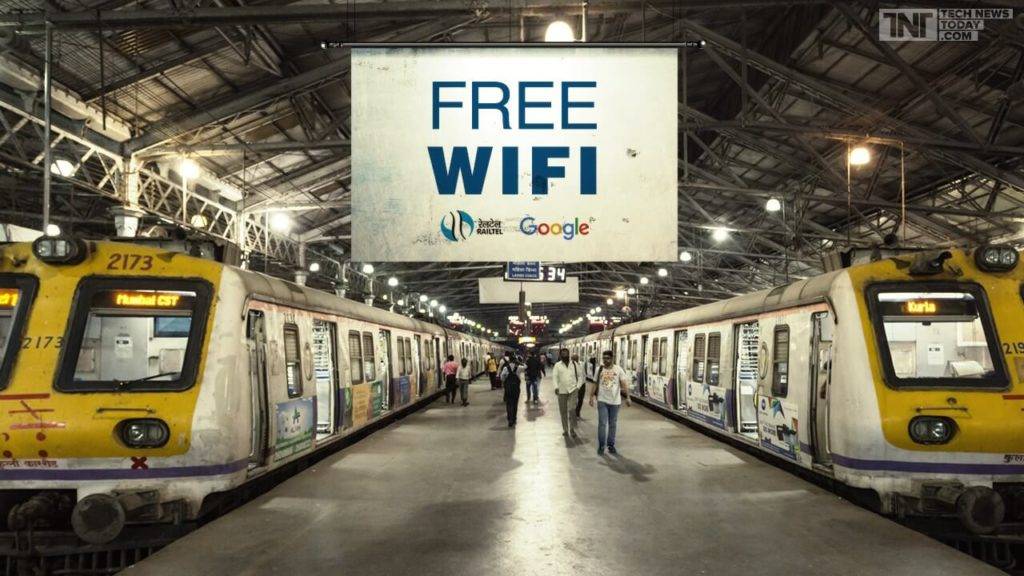Google Free Wi-Fi Station Launched In Abuja

In a move to foster internet connection in Nigeria, Google, in partnership with Nigeria’s Backbone Connectivity Network, has launched a free, high-speed and public Wi-Fi hotspot in Abuja, on the backs of its Google Station Initiative for Nigeria.
The station, which was launched last week, was the kickoff of Google’s intention to rollout free internet service in Northern Nigeria, as it was launched in three strategic parts of the FCT, including Wuse Market, Enab Plaza, and Banex Plaza.
Google Nigeria’s Head of Partnerships for Next Billion Users, Saidu Abdullahi, reported the program as a move to provide high-quality Wi-Fi hotspots across the country, and a simple tool-set to bring Nigerians closer to the internet in busy locations such as bus stations, airports, shopping malls, and public transit points. According to him, partners have leveraged Google Station’s business model to enable venues, system integrators, businesses, and ISPs to access fiber setup, maintain and monetize their internet hotspots.
Because numerous venues with public Wi-Fi need to stitch custom solutions together for separate locations, the internet services are cumbersome to use as log-in processes are one-off, connections are slow, and an abundance of networks can be porous security-wise. Venues usually encounter hurdles in the aspects of providing extensive networks, enabling high-quality service for users, as well as monetizing its usage.
Bringing a solution to the series of challenges facing the ISP industry in Nigeria, Google Station offers a platform on which the providers, venues and hardware partners can work to reduce deployment costs, operations and ongoing support. In a speech delivered at the inauguration of the station in Abuja, Saidu Abdullahi said that residents of the FCT can now experience top-drawer internet connections in airports, malls, and universities.
In an interview, Backbone Connectivity Network – an Abuja-based integrated communications and data management company – told Weetracker of the reception of the newly launched Station a Wuse Market. The CEO of BCN, Ibrahim Dikko, visited a part of Wuse market prior to the launch of the WiFi Station and interacted with a young boy who was pushing his wheelbarrow. He took time to ask the boy if he knew what the base stations accommodating the Wi-Fi access points were, alongside their functions, finally announcing to the boy that through them BCN was making the Internet freely accessible. In the twinkle of an eye, the boy informed others like him and there was a crowd browsing the Internet for various communication needs.
“That great desire to get online with their phones was clearly visible, and it was heartwarming to see that the work BCN is doing with Google – bringing Wi-Fi to many – has a great societal impact, one that touches lives and can touch many more, and even further transform the way we do business”, BCN reported.
BCN also told Weetracker concerning the future of the Abuja Station, revealing that there are definite plans to extend the Wi-Fi service to many more sites in Abuja, which would be done in phases and completed in 2019.
“It has recently been reported that Nigeria has about 100 million people yet to access the Internet. The future is a digital one, and BCN is proving the requisite fiber network infrastructure to support the Wi-Fi Station that can enhance Digital Inclusion and grow Digital Economies”, the company enthused.
In May, Google announced its plans to establish 200 Google Station locations to millions of Nigerians, and fulfilling that promise; it commenced the project by launching the free service at 11 venues in Lagos in July – making Nigeria the first West African country to have Google Station. While Abuja is the second city to receive the initiative, Google reaffirms its commitment to providing prime internet connections to citizens of the country.
Prior to the launch of the Station, connectivity Abuja was relatively available considering that internet connection is provided by different Service Providers. BCN, however, reported having been in the lead in the F.C.T when it comes to providing the best of Internet Connectivity services leveraging on its vast Optic Fibre Network Infrastructure which spans over 500Km and relied on by Telcos, ISP’s and Enterprise Organizations for Connectivity and Quality Service.
“We strive to bridge access gaps by providing the requisite infrastructure, one that can yield the quality of service the customer desires and one that enhances Digital Inclusion”, said BCN.
At the launch of the Station, Vice President Yemi Osinbajo remarked the event’s incredibleness as places including Wuse Market can now enjoy free Wi-Fi facilities in effectuation of Google’s pledge months ago. He affirmed that the initiative is essential because of Nigeria’s policy to ensure the democratization of access in assorted ways in order for the common Nigerian to access services available to other people. Citing developments in Nigeria’s tech space, Osinbajo alluded to the shops in Sabon Gari market being powered by solar panels and biofuels. He also mentioned Ariaria Market’s solar plant in Abia State and Sura Market’s gas-fired initiative in Lagos, among other markets in Nigeria.
Nigeria’s Vice President revealed that the reason for these tech developments is the need for economic sites to powered and availed similar success as that of larger industries. He reiterated the need for the bottom pyramid and street people to have access to the same free Wi-Fi as urban residents. He pointed out that the free Wi-Fi initiative is anticipated to spawn more economic opportunities for Nigerians by bridging societal gaps and providing free internet access to the underprivileged to have more access to information, educational tools, improved businesses, job opportunities, and ramifying expansions.
Featured Image: NaijaTechGuide